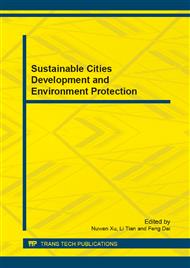p.1857
p.1861
p.1865
p.1869
p.1875
p.1880
p.1885
p.1891
p.1895
Lane Change Decision Analysis Based on Drivers' Perception-Judgment and Game Theory
Abstract:
To clearly understand the mechanism of drivers lane-changing decision, based on drivers perception of external information, integrated cognitive judgment and game theory, the decision-making model was established, then the structure and operating mechanism of the model were detailedly analyzed. By introducing game theory-related knowledge, the non-cooperative mixed strategy game between the object vehicle and the following vehicle in the target lane was further discussed. Then, the benefits and Nash equilibrium solution of the participants in the game were deeply researched. Analysis shows that lane-changing decision is composed of information perception and three judgment-decision processes, the factors which would affect decision-making level include information source characteristics, the ability of drivers perception and comprehensive cognitive judgment, driving behavior characteristics and so on. The Nash equilibrium solution of the lane change game is determined by driving safety level, journey time and importance degree of the revenues.
Info:
Periodical:
Pages:
1875-1879
Citation:
Online since:
August 2013
Authors:
Keywords:
Price:
Сopyright:
© 2013 Trans Tech Publications Ltd. All Rights Reserved
Share:
Citation:


